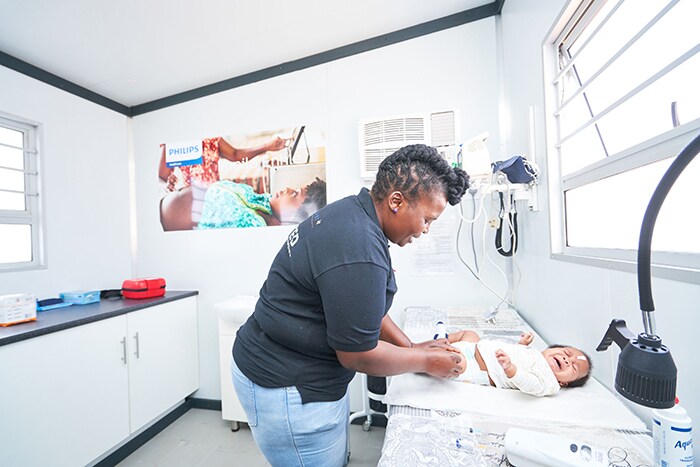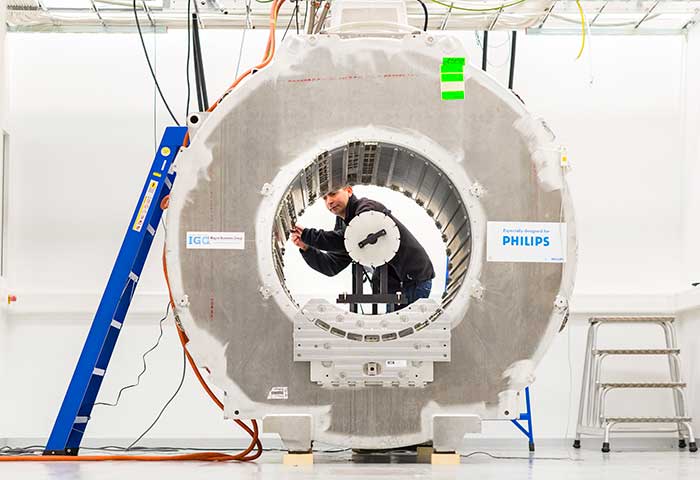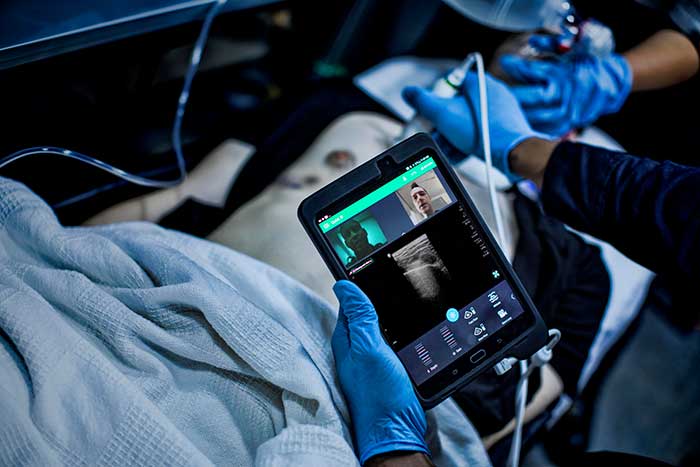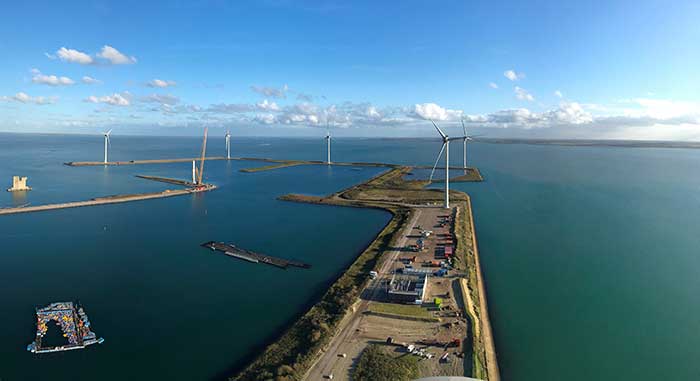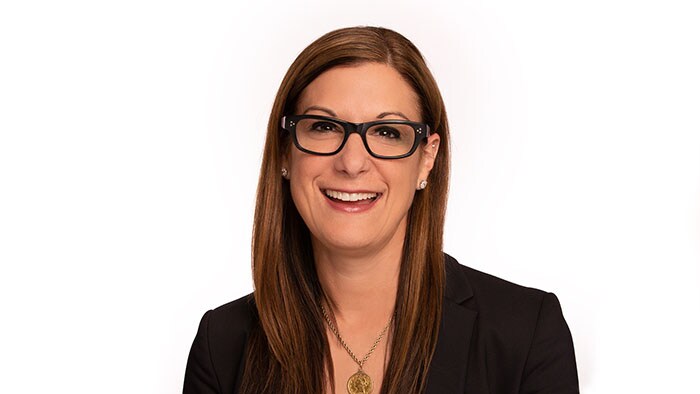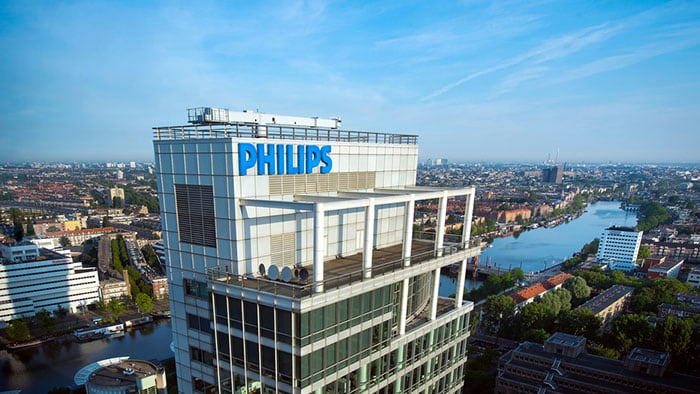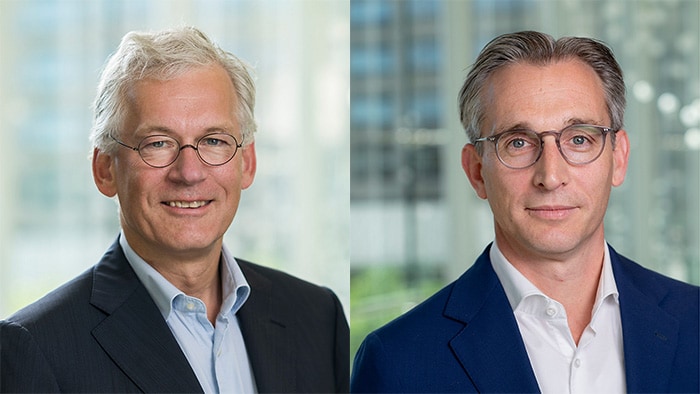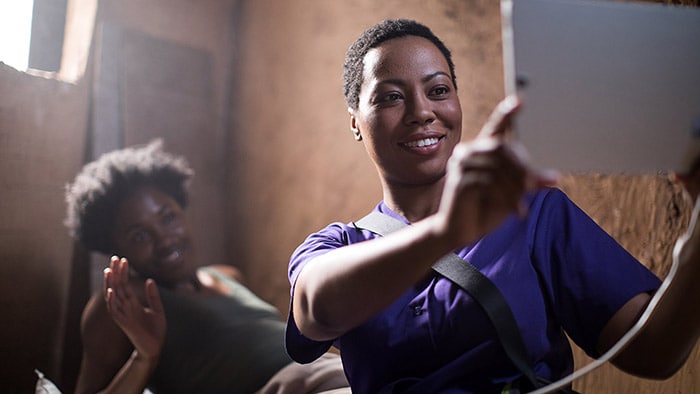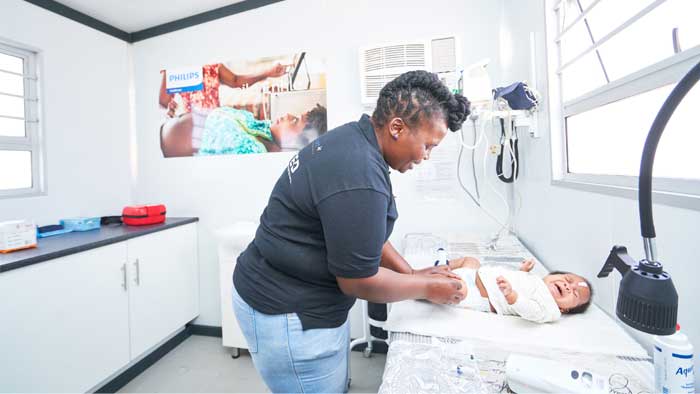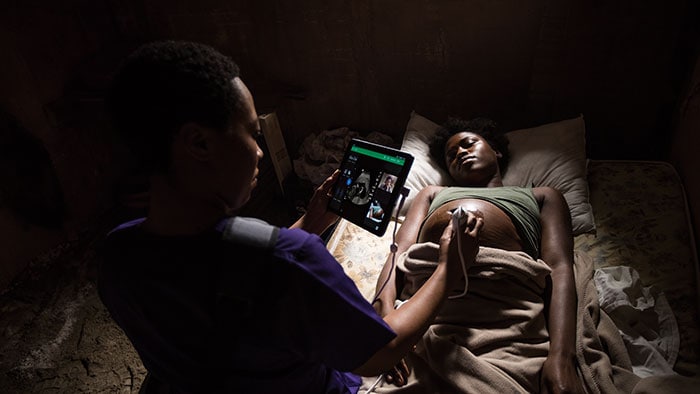Sep 14, 2020
Philips reinforces its leadership as a purpose-driven company with an enhanced and fully integrated approach to doing business responsibly and sustainably
Amsterdam, The Netherlands - Royal Philips (NYSE: PHG, AEX: PHIA), a global leader in health technology, today further reinforced its commitments as a purpose-driven company with the announcement of an enhanced and fully integrated approach to doing business responsibly and sustainably. Currently completing its ‘Healthy people, Sustainable planet’ 2016 - 2020 program, Philips is set to achieve all of the program’s ambitious targets by the end of the year, including generating 70% of its sales from green products and services with 15% from circular economy solutions, becoming CO2-neutral in its operations, recycling 90% of its operational waste, and sending zero waste to landfill [2]. Building on this strong track record, Philips’ new framework comprises a comprehensive set of key commitments across all the Environmental, Social and Corporate Governance (ESG) dimensions that guide execution of the company’s strategy. It includes ambitious targets and detailed plans of action. “When we started our transformation journey, our aim was to make sure that Philips stayed relevant - that we could apply our tremendous innovation strength to make a difference to people’s lives,” said Frans van Houten, CEO of Royal Philips. “As a leading health technology company, our purpose is to improve people’s health and well-being through meaningful innovation, positively impacting 2 billion lives per year by 2025,” said Frans van Houten, CEO of Royal Philips. “We aim to grow Philips responsibly and sustainably, and we therefore continuously set ourselves challenging environmental and social targets, and live up to the highest standards of governance. Acting responsibly towards the planet and society is part of our DNA. I am convinced that this is the best way for us to create superior, long-term value for Philips’ multiple stakeholders.”
Environmental: 100% of new product introductions in line with EcoDesign requirements
Respecting the planet’s environmental limits, Philips is committed to science-based targets, reducing its carbon footprint across its entire value chain in line with a 1.5 oC global warming scenario – as recommended by the United Nations Framework Convention on Climate Change (UNFCCC) and in line with the Paris Agreement. Through investments in sustainable innovation, 100% of its products and services will be designed in line with Philips' EcoDesign requirements aimed at improving energy efficiency, especially during the customer use phase. 'Eco-Hero’ products (breakthrough innovative products and solutions with clear sustainability benefits) will account for 25% of revenues. By 2025, the company will source 75% of its total energy consumption (including fuel) from renewable sources (compared to 36% in 2015). It will also ramp up its circular economy revenues from 15% to 25% of sales, extend its trade-in program to all its professional medical equipment, embed circular practices at its sites, and send zero waste to landfill. Philips will also work with its suppliers to reduce the environmental footprint of its entire supply chain in line with the 1.5 oC global warming scenario. Unavoidable carbon emissions in Philips’ own operations will be offset via investment in health-benefitting environmental projects, such as safe drinking water, clean energy, biodiversity, and forestation programs.
We aim to grow Philips responsibly and sustainably, and we therefore continuously set ourselves challenging environmental and social targets, and live up to the highest standards of governance.
Frans van Houten
CEO Royal Philips
Social: Improving health & well-being and inclusivity and diversity in the workplace
Philips aims to improve the health and well-being of 2 billion people per year by 2025 [1] through innovation, and partnering with private and public organizations (including the Philips Foundation). Lack of access to affordable, quality care is one of the most pressing issues of our time. COVID-19 has only intensified the situation, overwhelming health systems around the world. As part of its overall 2 billion lives improved commitment, Philips aims to expand access to care for 300 million people in underserved communities. Working together with its suppliers through its Supplier Sustainability Performance Program, which uses artificial intelligence to measure and predict sustainability performance and improvements, Philips is also committed to improving the lives of 1 million workers in its supply chain by 2025.
“Philips wants to be the best place to work for people who share our passion,” said Frans van Houten. “This is why we foster continuous learning and personal development, as well as an inclusive culture where people are valued and accepted for their uniqueness, and where everyone can be their best. We will progress building an employee base with a rich diversity of people and perspectives because it is an important driver of innovation and performance.” At Philips, employees are empowered to drive their own career through education, mentoring and employee networking programs. Employees have access to digital tools for self-development in order to grow and progress their careers. Driving Inclusion & Diversity, Philips has set a new goal of 30% gender diversity in senior leadership positions by the end of 2025, up from the 2020 target of 25% that it expects to meet before the end of this year. A company-wide training on unconscious bias awareness is part of the program to build and foster an inclusive environment. Philips has also deployed a range of programs to support the health and well-being of its employees, including a global employee assistance program aimed at helping employees with urgent needs. When COVID-19 emerged, Philips provided support in this area without losing sight of longer-term needs, such as a healthy work-life balance, stress management, resilience and prevention of mental health issues.
Governance: Full transparency on tax contributions
Philips has a strong track record of transparency in its plans, actions and reporting. For example, its CO2 emission-reduction targets are approved by the Science Based Targets initiative (SBTi), and its ‘Lives Improved’ performance metric is externally audited. Philips also engages transparently with shareholders, customers, business partners, governments and regulators, and delivers high-quality products and services that comply with all applicable laws and standards. In addition to the company’s customary disclosures on tax contributions that will be made in the Annual Report 2020, Philips will publish a supplemental financial report for 2020, which will include the tax contributions for all countries Philips operates in. This is in line with Philips’ commitment to transparency, and the company’s view that these tax contributions are social value contributions to the local communities. [1] In connection with Philips’ planned divestiture of its Domestic Appliances business, the company will no longer include the contribution of the Domestic Appliances portfolio in its ‘Lives Improved’ reporting. As a result Philips commits to improving the lives of 2 billion people a year by 2025, and the lives of 2.5 billion people by 2030. [2] Today, Philips generates 66% of its sales from green products and services, with 13% from circular economy solutions. Over 95% of its worldwide operations are currently powered by renewable electricity. Moreover, 85% of all operational waste is being recycled, and 67% of Philips’ industrial sites sent zero waste to landfill. Most recently, Philips North America achieved ‘zero waste to landfill’ status for its manufacturing sites. For more information: www.results.philips.com.
About Royal Philips
Royal Philips (NYSE: PHG, AEX: PHIA) is a leading health technology company focused on improving people's health and enabling better outcomes across the health continuum from healthy living and prevention, to diagnosis, treatment and home care. Philips leverages advanced technology and deep clinical and consumer insights to deliver integrated solutions. Headquartered in the Netherlands, the company is a leader in diagnostic imaging, image-guided therapy, patient monitoring and health informatics, as well as in consumer health and home care. Philips generated 2019 sales of EUR 19.5 billion and employs approximately 81,000 employees with sales and services in more than 100 countries. News about Philips can be found at www.philips.com/newscenter.

Topics
Contacts

Joost Maltha
Philips Global Press Office Tel: +31 6 10 55 8116
You are about to visit a Philips global content page
Continue
Steve Klink
Philips Global Press Office Tel: +31 6 10888824
You are about to visit a Philips global content page
ContinueMedia assets
Press releases
Get our press releases by e-mail
You are about to visit a Philips global content page
Continue
